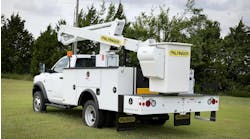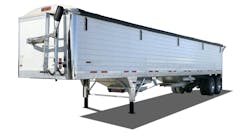A national association representing small-business truckers said in its appeal of a government mandate that requiring electronic monitoring devices on commercial vehicles does not advance safety, is arbitrary and capricious and violates 4th amendment rights against unreasonable searches and seizures.
The Owner-Operator Independent Drivers Association (OOIDA) stated these and other arguments in a legal brief filed with the U.S. Court of Appeals for the 7th Circuit.
OOIDA filed the appeal to challenge a new regulation from the Federal Motor Carrier Safety Administration which requires interstate truckers to install electronic logging devices, or ELDs, in their vehicles.
“The agency provided no proof of their claims that this mandate would improve highway safety. They didn’t even attempt to compare the safety records of trucking companies that use ELDs and those that do not,” said Jim Johnston, OOIDA President and CEO. “There is simply no proof that the costs, burdens and privacy infringements associated with this mandate are justified.”
“For most truckers, a truck is not just a vehicle but is also an office and a home away from home,” continued Johnston. “This mandate means monitoring the movement and activities of real people for law enforcement purposes and is an outrageous intrusion of the privacy of professional truckers.”
Under federal hours-of-service regulations, commercial truck drivers are limited in the number of hours they can work and drive daily as well as on a weekly basis. The FMCSA’s mandate requires that truck drivers use ELDs to track their driving and non-driving activities even though such devices can only track movement and location of a vehicle. The FMCSA finalized the rule last year for all interstate commercial motor vehicles model year 2000 and newer.
OOIDA also listed other arguments in the legal brief requesting the court to vacate the rule.
The Association pointed out that the mandate fails to comply with a congressional statute requiring ELDs to accurately and automatically record changes in drivers’ duty status. ELDs can only track vehicle movement and must rely on drivers to manually input changes in duty status. Therefore, OOIDA contends the mandated devices are no more reliable than paper logbooks for recording hours of service compliance.
On the issue of searches and seizures, OOIDA said the Supreme Court has previously found that prolonged use of a warrantless GPS tracking device on a vehicle is clearly a search within the meaning of the 4th amendment.
OOIDA said that FMCSA’s attempt to compel installation of ELD devices without a warrant is an unconstitutional seizure.
The Association also said the current mandate fails to ensure that ELDs will not be used to harass drivers.
OOIDA has previously challenged a similar mandate in the courts. In August 2011, the U.S. Court of Appeals for the 7th Circuit vacated a proposed electronic logbook rule citing FMCSA’s failure to ensure the devices would not be used to harass drivers.








